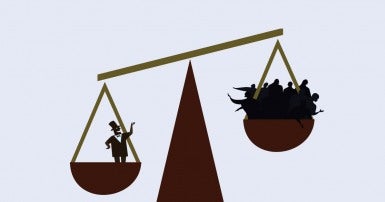 Canadian workers need a decent pay raise. Wages continue to rise slowly, and have increased at far lower rates than CEO pay – including public sector CEOs.
Canadian workers need a decent pay raise. Wages continue to rise slowly, and have increased at far lower rates than CEO pay – including public sector CEOs.
Base wages in major collective agreements settled in 2016 increased by an average of just 1.3 per cent, well below the rates of inflation expected for the duration of these agreements. As the table shows, with the exception of PEI, average negotiated wage increases from 2016 will fall below the expected Consumer Price Index increase over the next two years.
Average weekly earnings and average hourly earnings for all workers, unionized and non-unionized, increased by just 0.4 per cent and 1.1 per cent in 2016, the lowest in decades. Meanwhile the average annual compensation paid to Canada’s top 100 CEOs reached $9.5 million each in 2015, 6.8 per cent above the previous year’s average. Much CEO compensation comes as stock options and shares. Stock options, and any increase in share value, are taxed at half the rate that ordinary workers’ pay on their employment income.
Public sector wage scales are more equitable than in the private sector, but compensation for many public sector executives is also getting disturbingly high, while pay for most public sector workers languishes. For example, over the eight years from 2008 to 2016, the pay for BC’s top civil servant increased by 25 per cent to $366,000, twice the 12.6 per cent average base wage increase for BC public sector workers during the same period.
Pay for Ontario’s top civil servant increased by 33 per cent to $427,326 between 2008 and 2015, more than twice the average pay increase for Ontario public sector workers during that period. Meanwhile, annual compensation for the CEOs of Ontario Power Generation and the newly privatized Hydro One could soon reach $4 million each.
We need to put a stop to runaway CEO pay and ensure workers get decent pay raises instead.
Wage and price increases |
Canadian average |
Federal |
BC |
AB |
SK |
MB |
ON |
PQ |
NB |
NS |
PEI |
NL |
|
Average base wage increase in major settlements 2016 |
1.3% |
1.3% |
1.3% |
1.2% |
1.0% |
1.7% |
1.5% |
1.1% |
1.8% |
1.7% |
2.6% |
1.9% |
|
CPI inflation 2016 |
1.4% |
1.4% |
1.8% |
1.1% |
1.1% |
1.3% |
1.8% |
0.7% |
2.2% |
1.2% |
1.2% |
2.7% |
|
Inflation average forecast 2017* |
2.2% |
2.2% |
2.0% |
1.9% |
2.1% |
2.2% |
2.3% |
1.8% |
2.4% |
2.1% |
2.1% |
2.9% |
|
Inflation average forecast 2018* |
2.0% |
2.0% |
1.8% |
2.1% |
2.2% |
2.1% |
2.0% |
1.9% |
1.9% |
2.0% |
2.0% |
1.9% |
* Based on latest forecasts by TD Bank, RBC and BMO banks to 8 Nov 2016, and wage settlements from Labour Canada http://www.labour.gc.ca/eng/resources/info/datas/wages/index.shtml


